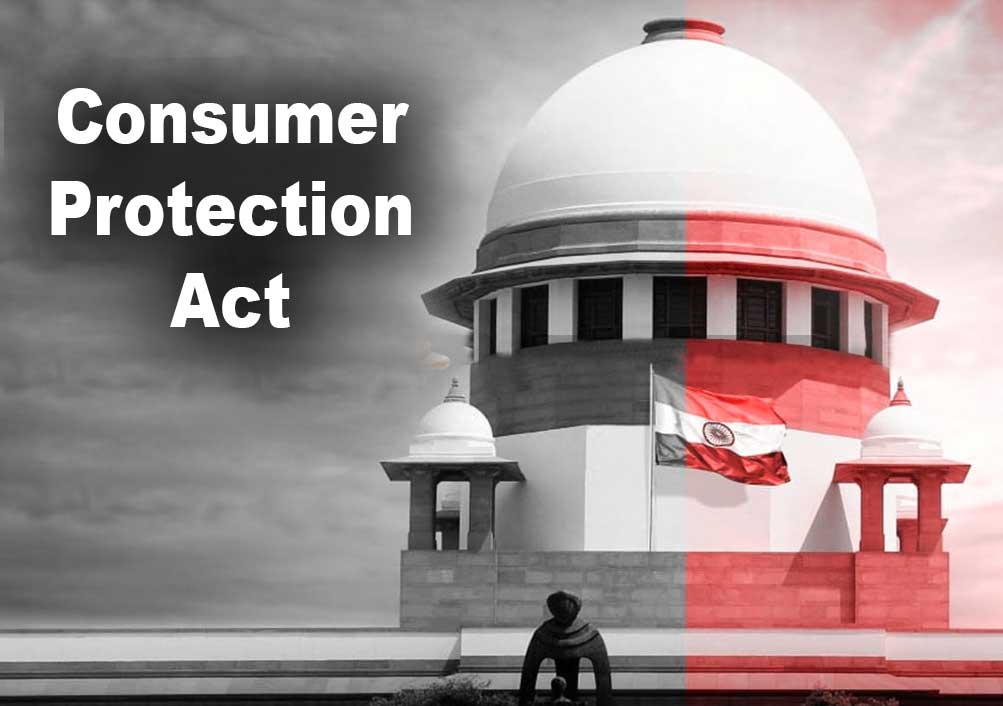In C.A. No. 4979 of 2019-SC- Wherever exclusionary clause is contained in insurance policy, insurer has to show that case falls within purview of such clause & insurance has to be construed in favour of insured in case of ambiguity, affirms SC while rejecting National Insurance Company’s plea challenging NCDRC’s order
Justices Ajay Rastogi & Bela M. Trivedi [17-05-2023]

Read Judgment: NATIONAL INSURANCE COMPANY LTD v. VEDIC RESORTS AND HOTELS PVT. LTD
Tulip Kanth
New Delhi, May 18, 2023: In a case where the insured property of a Resort was damaged by a mob of about 200-250 persons and the National Insurance Company was asked to pay a sum of Rs 202.216 lakh to the Resort, the Supreme Court has dismissed the company’s appeal while observing that it had failed to discharge its burden of bringing the case within the exclusionary clause V(d) of the Insurance policies in question.
“It is trite to say that wherever such an exclusionary clause is contained in a policy, it would be for the insurer to show that the case falls within the purview of such clause. In case of ambiguity, the contract of insurance has to be construed in favour of the insured”, the Division Bench of Justice Ajay Rastogi and Justice Bela M. Trivedi held.
The respondent-complainant, running a Resort in West Bengal had obtained two insurance policies from the appellant-Insurance Company, one in respect of the buildings of the said Resort with plant and machineries accessories and furniture etc. and the other in respect of two hotel buildings at the said resort with stock.
As per the case of the respondent-complainant in 2009, a mob of about 200-250 persons entered the resort and damaged/destroyed the insured property resulting in loss
to the complainant. The incident was reported to the police and an FIR was registered.
It was revealed in the investigation that the accused-Gaffar Molla and his associates after the firing and throwing bombs at the football match venue, and upon being chased by the crowd, took shelter in Vedic Resorts and Hotels Pvt. Ltd. of the respondent-complainant. Since the said Gaffar Molla and his associates were given shelter in the said Vedic Resort, the crowd chased them and damaged the insured property of the respondent-complainant.
As per the Final Survey Report, the Surveyor in aggregate assessed the loss to the tune of Rs. 202.216 lakh under both the policies. The appellant-Insurance company repudiated the claim and the respondent therefore filed the Consumer Complaint challenging the said repudiation of claim under Section 21 of the Consumer Protection Act, 1986 before the National Commission, which by the impugned order was partly allowed. Thus, the aggrieved appellant-Insurance Company had approached the Top Court with an appeal under Section 23 challenging this judgment whereby the appellant was directed to pay a sum of Rs 202.216 lakh to the complainant along with interest.
It was the Company’s case that the respondent had harboured the hard-core criminal Gaffar Molla and his associates who had killed one person, injured many others and had invited public grudge which had caused damage to his insured property. Hence, according to him, the loss suffered by the respondent was an outcome of the malicious act on the part of the management of Vedic village, which fell within the exclusions provided under Clause V(d) of the Insurance Policy.
The Bench referred to clause V(d) and discerned that the loss of or visible physical damage or destruction by external violent means directly caused to the property insured was covered, but the loss, damage or destruction to the property caused by burglary, housebreaking, theft, larceny or any such attempt or any omission of any kind of any person in any malicious act was not covered. It further stated that if the Insurance company alleges that the loss/damage was not caused by any malicious act, the burden of proving the contrary would be upon the insured.
Noting that the alleged incident of firing and causing death of a person had taken place on the spot during the football match being played at the football ground, the Bench observed that there was hardly any material to show that the entire incident and the resultant damage to the insured property was caused as a result of the malicious act of the respondent-complainant.
As per the Bench, the appellant-Insurance Company had failed to discharge its burden of bringing the case within the exclusionary clause V(d) of the policies in question.
Noticing the fact that the surveyor in the Final Survey Report had also opined that the loss had occurred due to the insured peril and the claim was admissible. The Bench said, “Though it is true that the Surveyor’s Report is not the last and final one nor is so sacrosanct as to the incapable of being departed from, however, there has to be some cogent and satisfactory reasons or grounds made out by the insurer for not accepting the Report. We are afraid in the instant case, the appellant-Insurance Company has failed to make out any such cogent reason for not accepting the surveyor’s Report.”
Thus, the appeal was accordingly dismissed.
Sign up for our weekly newsletter to stay up to date on our product, events featured blog, special offer and all of the exciting things that take place here at Legitquest.




Add a Comment